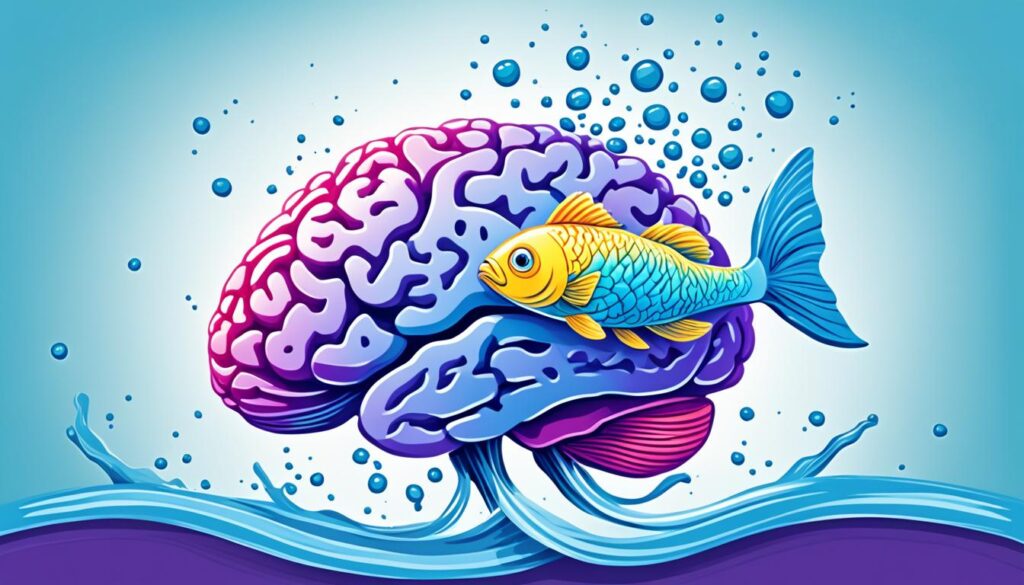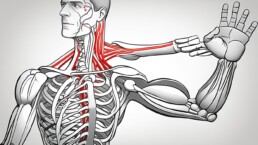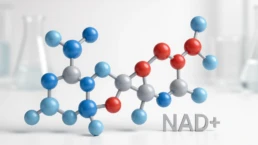Medically reviewed by Dr Chandril Chugh,
Renowned Neurologist and American Trained Specialist
Your body relies on a variety of essential nutrients to maintain optimum health and vitality. These nutrients play crucial roles in supporting various bodily functions, from maintaining strong bones to supporting the immune system.
Table of Contents
ToggleKey Takeaways:
- Essential nutrients are crucial for maintaining optimum health and vitality.
- These nutrients play vital roles in supporting various bodily functions.
- Including a balanced diet rich in essential nutrients can fuel your wellness journey and support overall well-being.
- Ensure you consume these nutrients on a daily basis to promote a healthy lifestyle.
- By prioritizing essential nutrients, you can enhance your body’s ability to function properly and maintain optimum health.
+
1 Selenium – An Antioxidant Nutrient
Selenium is a vital nutrient that acts as an antioxidant, protecting your cells from damage caused by harmful free radicals. It plays a crucial role in maintaining your overall health and well-being.
As an antioxidant, selenium helps neutralize free radicals, unstable molecules that can cause oxidative stress and damage to your cells. By doing so, it helps reduce the risk of chronic diseases and supports the health of various body systems.
In addition to its antioxidant properties, selenium is also important for reproduction and proper thyroid function. It is an essential component of several enzymes involved in reproductive processes and the synthesis of thyroid hormones.
Supporting Reproduction
Selenium is crucial for both male and female reproductive health. In men, it supports the development and proper functioning of sperm cells. Adequate selenium levels are associated with improved sperm quality and motility, promoting fertility.
For women, selenium is involved in various stages of the reproductive process, including DNA synthesis, oocyte development, and implantation of the fertilized egg. It plays a role in maintaining a healthy uterus and supporting a successful pregnancy.
Maintaining Thyroid Function
The thyroid gland relies on selenium for the production of thyroid hormones, which regulate metabolism, growth, and development. Selenium is necessary for the proper conversion of the inactive form of thyroid hormone (T4) into the active form (T3).
When selenium levels are insufficient, thyroid hormone production may be impaired, leading to decreased thyroid function and potential health issues such as fatigue, weight gain, and mood disturbances.
To ensure adequate selenium intake, include selenium-rich foods in your diet. Good dietary sources of selenium include Brazil nuts, seafood, whole grains, and lean meats.
Incorporating selenium into your daily diet promotes antioxidant protection, supports reproduction, and contributes to proper thyroid function. Make sure to consult with a healthcare professional or nutritionist for personalized guidance on meeting your selenium requirements.
2 DHA Omega-3 – Nourishing the Brain and Eyes
When it comes to taking care of your brain and maintaining sharp eyesight, one nutrient that stands out is DHA Omega-3. This unique fat, primarily found in seafood, plays a crucial role in nourishing the brain and supporting optimal eye health.

The brain, being the command center of the body, requires proper nourishment to function at its best. DHA Omega-3 is a key component of brain tissue, aiding in the transmission of signals between brain cells and supporting overall cognitive function.
But it doesn’t stop there. DHA Omega-3 also plays a vital role in maintaining sharp eyesight. The retina, located at the back of the eye, contains a high concentration of DHA Omega-3. This nutrient helps promote healthy vision and may even protect against age-related vision changes.
Incorporating DHA Omega-3 into your diet is essential for optimal brain and eye health. While seafood is an excellent source of this nutrient, you can also find it in fish oil supplements or algae-based supplements for those following a vegetarian or vegan lifestyle.
To ensure you’re getting enough DHA Omega-3, aim to include fatty fish, such as salmon, mackerel, or sardines, in your diet at least twice a week. If you’re considering supplements, consult with your healthcare provider to determine the most suitable option for you.
3 Calcium – Building Strong Bones and Teeth
Calcium is a vital mineral that plays a crucial role in the development and maintenance of strong bones and teeth. It is an essential nutrient that supports various functions in our bodies.
1. Bone Health:
Calcium is a key component of our skeletal system. It helps to build and strengthen our bones, ensuring they remain strong throughout our lives. Adequate calcium intake is particularly important during childhood and adolescence, as this is when bones are growing and developing.
2. Teeth Health:
In addition to bones, calcium also contributes to the health of our teeth. It helps to maintain the structure and strength of tooth enamel, protecting against tooth decay and cavities.
3. Muscle Contraction:
Calcium is essential for muscle contraction. When our nerves signal our muscles to move, calcium is released, allowing the muscles to contract and perform their intended actions. Without sufficient calcium, muscle function can be compromised.
4. Blood Clotting:
Calcium is involved in the process of blood clotting, which is essential for wound healing and preventing excessive bleeding. It helps in the activation of clotting factors that form a mesh-like structure to stop bleeding.
5. Communication Between Brain and Nerves:
Calcium ions play a vital role in facilitating communication between the brain and nerves. They help transmit electrical signals along nerve cells, allowing the brain to control various bodily functions and coordinate movements.
Ensuring adequate calcium intake is crucial for overall health and well-being. While dairy products are often associated with calcium, there are many other sources as well, such as leafy green vegetables, fortified plant-based milk, tofu, and almonds.
Calcium-Rich Food Sources:
| Food Source | Calcium Content (per serving) |
|---|---|
| Milk | 300 mg |
| Yogurt | 250 mg |
| Cheese | 200 mg |
| Kale | 180 mg |
| Broccoli | 90 mg |
| Tofu | 150 mg |
| Almonds | 75 mg |
Remember, it’s important to maintain a balanced diet that includes sufficient calcium to support bone and teeth health, muscle function, blood clotting, and proper communication between the brain and nerves.
4 Vitamin D – Calcium Absorption and Immune Support
Vitamin D is an essential nutrient that plays a multitasking role in our body. Not only does it help with the absorption of calcium, a key mineral for strong bones and teeth, but it also plays a crucial role in supporting our immune system.
When it comes to calcium absorption, vitamin D acts as a facilitator. It helps our bodies absorb and utilize calcium from the food we eat, ensuring that we get the maximum benefits from this important mineral. Without sufficient vitamin D, the body may struggle to absorb enough calcium, leading to potential deficiencies and weakened bones.
Furthermore, vitamin D is a key player in supporting our immune system. It helps regulate immune cell function and plays a role in the body’s defense against infections and diseases. Adequate vitamin D levels have been linked to a reduced risk of respiratory infections, autoimmune diseases, and certain types of cancer.
Although our bodies can produce vitamin D when exposed to sunlight, it can be challenging to get enough from this source alone, especially for those living in colder climates or spending most of their time indoors. Additionally, very few foods naturally contain vitamin D, making it necessary for many people to supplement their intake.
Include foods rich in vitamin D, such as fatty fish like salmon and sardines, fortified dairy products, and egg yolks, in your diet. However, it’s always a good idea to consult with a healthcare professional to determine if supplementation is necessary to maintain optimal vitamin D levels.
The Role of Vitamin D in Calcium Absorption and Immune Support
Vitamin D plays two important roles in our body: assisting with calcium absorption and supporting a healthy immune system.
| Benefits of Vitamin D | Food Sources |
|---|---|
| Facilitates calcium absorption for strong bones and teeth |
|
| Supports the immune system |
|
While it’s important to include vitamin D-rich foods in your diet, supplementation may be necessary, especially for individuals at risk of deficiency. Speak to your healthcare provider to determine the best approach for maintaining adequate vitamin D levels.

Remember, vitamin D plays a crucial role in ensuring proper calcium absorption and supporting a healthy immune system. Incorporate vitamin D-rich foods into your diet and consult with a healthcare professional to optimize your vitamin D levels for overall well-being.
5 Zinc – Supporting Immune Function and Growth
Zinc is a vital mineral that plays a crucial role in supporting immune function and promoting growth and development. It is essential for the healthy functioning of immune cells, which are responsible for defending your body against harmful pathogens. By ensuring an adequate intake of zinc, you can help enhance the strength and resilience of your immune system.
In addition to its immune-boosting properties, zinc also plays a key role in wound healing. It aids in the production of collagen, a protein that is necessary for the formation of new tissues and the repair of damaged skin. Whether you have a minor cut or a severe wound, zinc can help expedite the healing process and minimize the risk of infection.
Furthermore, zinc is particularly important for growth and development, especially during crucial stages such as childhood, adolescence, and pregnancy. It is involved in numerous physiological processes, including cell division, DNA synthesis, and protein synthesis. By ensuring an adequate intake of zinc, you can support proper growth and development, ensuring optimal health in these critical life stages.
Food Sources of Zinc
You can obtain zinc from various food sources, including:
- Shellfish, such as oysters, crab, and shrimp
- Red meat, such as beef and lamb
- Poultry, such as chicken and turkey
- Legumes, such as chickpeas and lentils
- Nuts and seeds, such as pumpkin seeds and cashews
- Whole grains, such as quinoa and brown rice
| Food Source | Zinc Content (mg per 100g) |
|---|---|
| Oysters | 16-182 |
| Beef | 4.5-12.5 |
| Chicken | 2-3 |
| Lentils | 3.3 |
| Pumpkin Seeds | 7.64 |
| Quinoa | 2.9 |
It’s important to note that the bioavailability of zinc from plant-based sources may be lower compared to animal-based sources. If you follow a vegetarian or vegan diet, it may be necessary to ensure adequate zinc intake through careful meal planning or supplementation.
6 Lutein – Cognitive Function and Vision Protection
Lutein is an essential nutrient that provides numerous benefits for cognitive function and vision protection. As an antioxidant, lutein plays a vital role in preventing damage caused by free radicals, protecting the brain and eyes from oxidative stress.
When it comes to cognitive function, lutein has been shown to contribute to improved memory and overall brain health. Studies have indicated that higher lutein levels are associated with better cognitive performance, including enhanced processing speed and attention span.
But the benefits of lutein don’t stop there. This powerful nutrient is also crucial for maintaining healthy vision. Lutein is naturally present in parts of the brain responsible for visual processing and in the macula, a part of the retina that is essential for clear central vision.
By increasing lutein intake, you can protect your eyes from common age-related conditions such as macular degeneration and cataracts. Macular degeneration is a leading cause of vision loss in older adults, and lutein has been found to be particularly effective in maintaining macular health and preventing the progression of the disease.
To ensure you’re getting enough lutein in your diet, incorporate foods such as leafy green vegetables (like spinach and kale), eggs, and corn. Considered a carotenoid, lutein is also available in supplement form for those who may have difficulty meeting their daily requirements.
Take care of your brain and protect your vision by including lutein-rich foods and supplements in your daily routine. Your cognitive function and eye health will thank you.

Benefits of Lutein:
- Protects the brain from oxidative stress
- Improves cognitive function and memory
- Maintains healthy vision
- Prevents macular degeneration and cataracts
Food Sources of Lutein:
| Food | Lutein Content (per serving) |
|---|---|
| Spinach (cooked) | 20.4 mg |
| Kale (cooked) | 23.7 mg |
| Eggs (hard-boiled) | 0.2 mg |
| Corn (cooked) | 1.5 mg |
7 Protein – Building Blocks for Cell and Muscle Health
Protein is an essential nutrient that serves as the building blocks for the cells in your body. From the skin and organs to the muscles and bones, protein plays a crucial role in maintaining cell health and supporting their proper functioning. Not only that, but protein is also vital for muscle health and growth.
When you consume protein-rich foods, such as lean meats, fish, eggs, dairy products, and plant-based sources like beans and nuts, your body breaks down the protein into amino acids. These amino acids are then used to repair and build new cells, including muscle tissue.
Building and maintaining healthy muscles is especially important if you lead an active lifestyle or engage in regular exercise. Protein provides the necessary resources to repair and strengthen your muscles after workouts, aiding in their growth and preventing injuries.
Additionally, protein can help you feel fuller and more satisfied after a meal. It has a higher satiety value compared to carbohydrates and fats, meaning that consuming an adequate amount of protein with each meal may help curb your hunger and prevent overeating.
To ensure you’re getting enough protein, aim to include protein-rich foods in every meal. You can also consider supplementing your diet with protein powder or bars if needed. However, it’s important to consult with a healthcare professional or registered dietitian before starting any supplementation.
Remember, protein is not just about muscles. It also plays a vital role in maintaining cell health, supporting various bodily functions, and promoting overall well-being.
Now, let’s take a look at the following table, which highlights some excellent sources of protein:
| Protein-Rich Foods | Protein Content per Serving |
|---|---|
| Chicken Breast (cooked) | 31 grams |
| Salmon (cooked) | 22 grams |
| Greek Yogurt (plain, non-fat) | 17 grams |
| Lentils (cooked) | 18 grams |
| Quinoa (cooked) | 8 grams |
| Almonds | 6 grams |
By incorporating a variety of these protein sources into your diet, you can ensure that you’re meeting your protein needs and supporting your cell and muscle health.
8 Vitamin A – Anti-Infective Vitamin and Sharp Vision
Vitamin A, also known as the “anti-infective vitamin,” is essential for maintaining skin health, supporting the health of the mouth, stomach, and lungs, and helping them fight infection. It plays a crucial role in boosting the immune system and keeping these vital organs strong and healthy. In addition to its anti-infective properties, vitamin A is also crucial for maintaining sharp vision. It helps to support the health of the retina, the part of the eye responsible for clear and sharp vision.
To ensure optimal absorption of vitamin A, it is recommended to consume it with some fat. This allows the vitamin to dissolve properly and be absorbed more efficiently by the body. Including foods rich in vitamin A, such as carrots, sweet potatoes, spinach, and liver, in your diet can help you meet your daily vitamin A needs.

9 Fluids and Electrolytes – Hydration and Temperature Regulation
Don’t forget the importance of fluids and electrolytes for hydration. They lubricate joints, keep cells and tissues healthy, remove waste products, and regulate body temperature, especially during illness. Consuming liquids that contain electrolytes like sodium, potassium, and chloride can help the body hold onto fluids for better hydration.
When it comes to staying hydrated, fluids are essential for maintaining optimal bodily functions. Adequate hydration ensures that your body can regulate its temperature effectively, allowing you to perform at your best. Electrolytes, such as sodium, potassium, and chloride, play a vital role in maintaining the balance of fluids in your body and ensuring proper hydration.
The Role of Fluids in Hydration
Fluids are essential for almost every function in your body. They transport nutrients, aid in digestion, lubricate joints, and assist in the elimination of waste products. In the context of hydration, fluids help replenish the water lost through everyday activities such as sweating, breathing, and urination.
When your body lacks sufficient fluids, you may experience symptoms of dehydration, such as dry mouth, fatigue, dizziness, and decreased urine output. Severe dehydration can lead to more serious health complications, including heatstroke and organ failure.
The Importance of Electrolytes
Electrolytes are minerals that carry an electric charge in your body. They play a crucial role in maintaining fluid balance, transmitting nerve impulses, and supporting proper muscle function. Sodium, potassium, and chloride are among the most important electrolytes for maintaining hydration.
Sodium helps regulate the amount of fluid in your body and supports the functioning of your nerves and muscles. Potassium helps to maintain proper cell function and aids in muscle contractions. Chloride works in conjunction with sodium to maintain fluid balance and promote proper digestion.
During intense physical activity or when you’re in a hot environment, you may lose electrolytes through sweat. Replenishing these electrolytes is essential for maintaining hydration and preventing imbalances that can lead to muscle cramps, weakness, and fatigue.
Optimal Hydration for Temperature Regulation
Your body relies on adequate hydration to regulate its temperature, especially during times of increased physical activity or exposure to heat. When you’re properly hydrated, your body can efficiently cool itself through sweating. Sweating helps dissipate heat, allowing you to maintain a stable body temperature.
On the other hand, when you’re dehydrated, your body’s ability to cool itself is compromised. This can lead to heat-related illnesses, such as heat exhaustion or heatstroke, which can be life-threatening if not addressed promptly.
Proper hydration is essential for supporting your body’s temperature regulation mechanisms and preventing heat-related illnesses. By consuming fluids that contain electrolytes, you can replenish the water and essential minerals lost through sweating and maintain optimal hydration levels.
Conclusion
Ensuring that your body receives the essential nutrients it needs on a daily basis is crucial for maintaining optimum health. These nutrients, including antioxidants, vitamins, and minerals, play vital roles in supporting various bodily functions, from bolstering the immune system to promoting healthy bones and cognitive function.
By incorporating a balanced diet rich in these essential nutrients, you can fuel your wellness journey and support your overall well-being. Remember to include a variety of fruits, vegetables, lean proteins, whole grains, and healthy fats in your meals to ensure that you are providing your body with the necessary nourishment it needs.
Pay attention to the quality of the nutrients you consume, as well. Opt for organic and locally sourced ingredients whenever possible to minimize pesticide exposure and maximize nutrient content. Additionally, consider consulting a healthcare professional or registered dietitian for personalized guidance on meeting your body’s specific nutrient needs.
FAQ
What are the 12 essential nutrients that my body needs daily?
The 12 essential nutrients that your body needs on a daily basis include selenium, DHA Omega-3, calcium, vitamin D, zinc, lutein, protein, vitamin A, fluids, and electrolytes.
What is the role of selenium in the body?
Selenium acts as an antioxidant, protecting cells from damage caused by free radicals. It is also important for reproduction and proper thyroid function.
What is DHA Omega-3 and how does it benefit the body?
DHA Omega-3 is a unique fat found mainly in seafood. It plays a crucial role in nourishing our brains and maintaining sharp eyesight.
Why is calcium important for our bodies?
Calcium is essential for building strong bones and teeth. It also helps muscles contract, aids in blood clotting, and helps our brains and nerves communicate with each other.
What is the role of vitamin D in our bodies?
Vitamin D helps our bodies absorb calcium and promotes a strong immune system. While our bodies can produce vitamin D from sunlight, it is found in very few foods.
How does zinc support immune function and growth?
Zinc plays a crucial role in keeping immune cells strong and healthy. It also aids in wound healing and is essential for proper growth and development, especially during childhood, adolescence, and pregnancy.
What is the role of lutein in the body?
Lutein is an antioxidant that is found in parts of the brain and eyes. It helps with cognitive function and maintains healthy vision by protecting against macular degeneration and cataracts.
Why is protein essential for our bodies?
Protein provides the building blocks for cells, muscles, bones, hormones, antibodies, and more. Consuming an adequate amount of protein with each meal helps build muscle and may help you feel fuller for longer between meals.
How does vitamin A support our health?
Vitamin A, also known as the “anti-infective vitamin,” supports the health of the skin, mouth, stomach, and lungs, helping them fight infection. It is also crucial for maintaining sharp vision. Consuming vitamin A with some fat enhances absorption.
Why are fluids and electrolytes important for our bodies?
Fluids and electrolytes are important for hydration. They lubricate joints, keep cells and tissues healthy, remove waste products, and regulate body temperature, especially during illness. Consuming liquids that contain electrolytes like sodium, potassium, and chloride can help the body hold onto fluids for better hydration.
Source Links

This article is medically reviewed by Dr. Chandril Chugh, Board-Certified Neurologist, providing expert insights and reliable health information.
Dr. Chandril Chugh is a U.S.-trained neurologist with over a decade of experience. Known for his compassionate care, he specializes in treating neurological conditions such as migraines, epilepsy, and Parkinson’s disease. Dr. Chugh is highly regarded for his patient-centered approach and dedication to providing personalized care.








